Photographs: Pete Souza/White House Photos. Sanjaya Baru
When Indian leaders think about the world, they think about the past 5,000 years or least the past 50, Robert Blackwill, the most erudite, witty, opinionated and controversial United States ambassador to India since John Kenneth Galbraith, once said to me.
But, Bob added, when a US president thinks about the world, he thinks mainly about the next election.
The education of an American president on foreign policy issues generally begins during the last days of the campaign.
As a result, Washington DC has a clutch of think tanks that have taken upon themselves the self-assigned responsibility of educating the president.
In India, however, we leave the job mainly to serving diplomats.
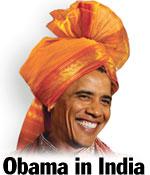
. . .
Obama visit: How trained are Indian policymakers?
Photographs: Pete Souza/White House Photos
Actually, the problem is that India started off with a prime minister who was, in fact, educating others about India and the world, in seeking to educate his daughter, and so shaped Indian foreign policy in his mould.
His world view continued to shape policy long after he died because his daughter and grandson inherited the mantle.
Since then, however, because a succession of prime ministers (P V Narasimha Rao, I K Gujral and Atal Behari Vajpayee, and excluding H D Deve Gowda), came to one end of New Delhi's South Block after serving next door, at the foreign office, their education in foreign policy was undertaken to a large extent by the foreign service.

. . .
Obama visit: How trained are Indian policymakers?
Image: The Taj Palace Hotel, New Delhi.The system defined the policy.
Prime Minister Manmohan Singh is the only post-Nehruvian prime minister who learnt his foreign policy sitting in the North Block.
This has been at once both a source of strength and weakness.
Strength because the present and the future weigh more on his mind than the past, he looks at opportunities around the world and not just threats, and he has grasped the importance of economic relations ("productive forces and production relations", the 'base' in Marxian terminology) in shaping the 'super-structure' of diplomatic relations.
Weakness because neither the foreign service nor traditional Indian politicians, nor indeed many think tanks yet feel fully comfortable with this new Manmohanian view.
. . .

Obama visit: How trained are Indian policymakers?
Photographs: Reuters
The 'Manmohan Singh Doctrine', if it can be called that, is not oblivious to, much less blind to, the political and geo-political factors shaping Indian foreign policy.
It is acutely conscious of the challenge posed by extremist ideologies of all hues to India's, and indeed global, security.
Unfortunately, however, not enough has been done both by the government and by researchers and independent think tanks to 'educate' both policy-makers and opinion-makers about the significance of the paradigm shift in Indian foreign policy as a consequence of the shift both in Indian economic policy and in the structure of global power and the global economy.
That for both geo-economic and geo-political reasons good relations between India and the US are as important for India as they indeed are for the US in years to come.
. . .

Obama visit: How trained are Indian policymakers?
Consider the fact that so many strategic policy analysts have written so much to educate President Obama on the eve of his visit to India, while so few have written anything of equal depth and consequence in educating Indian policy-makers and the commentariat on similar issues.
Apart from the work of analysts like C Raja Mohan, foreign affairs editor of The Indian Express, there is very little published work on India-US relations from Indian scholars.
An important study I have read remains unpublished! It is a report that was commissioned by Prime Minister Singh and written by an inter-disciplinary group led by India's pre-eminent strategic affairs guru K Subrahmanyam.
It is a pity that despite Mr Subrahmanyam's suggestion that it be published, the report remains a classified document.
. . .

Obama visit: How trained are Indian policymakers?
What would President Obama be reading about India-US relations on his way to New Delhi? Two excellent papers, one edited by Richard Armitage, Nicholas Burns and Richard Fontaine (Natural Allies: A Blueprint for the Future of US-India Relations, Centre for New American Security, October 2010); and another written by Ashley Tellis (Obama in India Building a Global Partnership: Challenges, Risks, Opportunities, Carnegie Endowment for International Peace, October 2010.)
The CNAS paper is endorsed by a large number of known India-watchers cutting across the American political divide, and Dr Tellis is a reputed scholar who is now heard with as much attention by US Secretary of State Hillary Clinton as he was by her predecessor Condoleeza Rice.
Both find it necessary to educate President Obama about the importance of the India relationship because both reports recognise that he has been at once pre-occupied with domestic economic and political challenges and foreign ones in which India does not figure as prominently as do China and Pakistan.
. . .

Obama visit: How trained are Indian policymakers?
Image: Indian Parliament.Photographs: B Mathur/Reuters
When President Bush arrived in New Delhi in 2005, he came convinced about the importance of India.
It was India's political class that needed convincing.
Today, thinking people in the US recognise that the US president needs a crash course on the bilateral relationship and are providing it.
But the fact remains that many in India's policy and opinion-making circles also need similar education and no think tank has taken it upon itself to bridge this gap.
India's richest businessmen will be rubbing shoulders this weekend in Mumbai with President Obama and his team and they will all be toasting to good relations with the US.
The question is how many of them have invested any money at all in educating Indian opinion about the importance of this relationship?
I am not referring to newspaper columns and public speeches, but to privately funded research and opinion formation on the strategic challenges facing India, the options before the country and the role and relevance of good relations with the US.


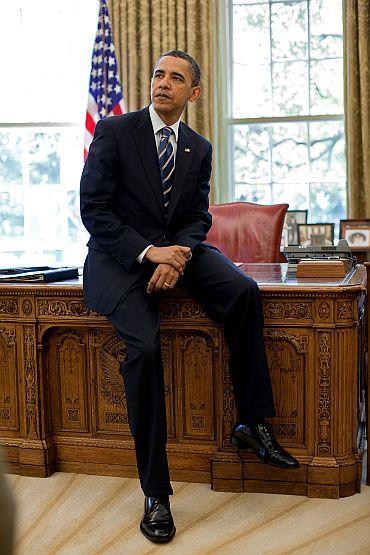
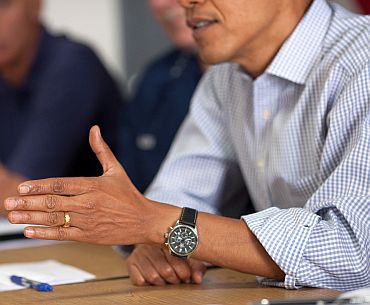
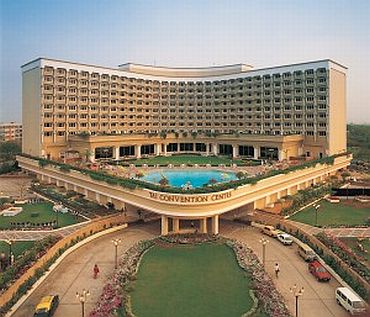
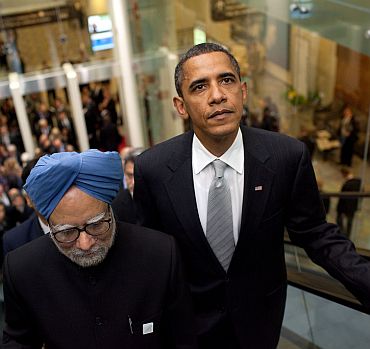
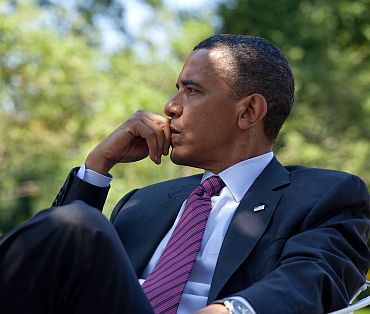
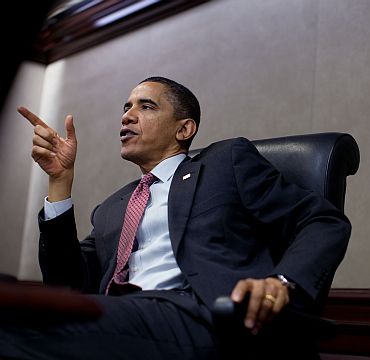
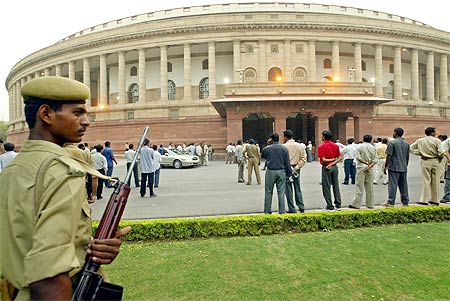

article